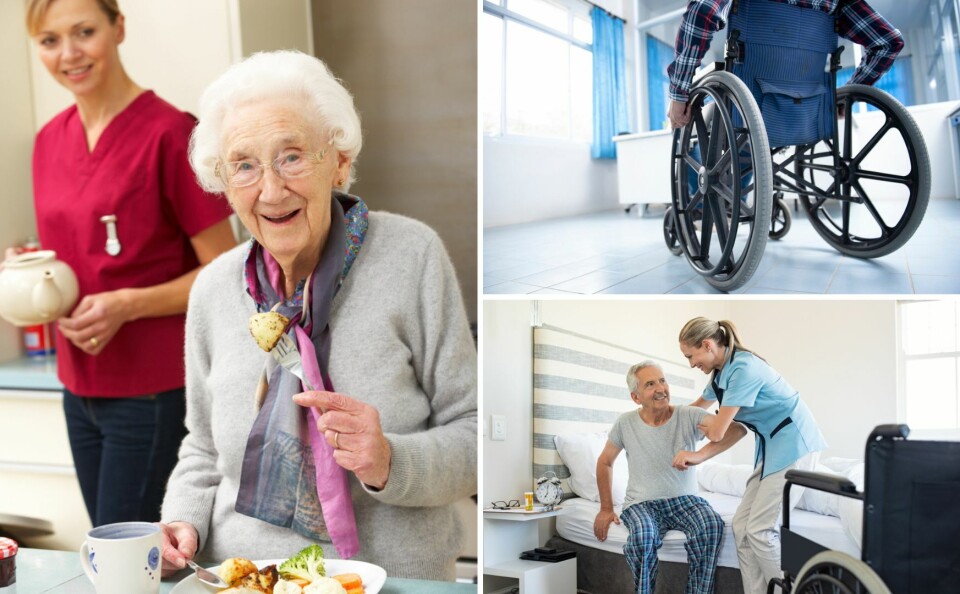-
Dates 2026: Family allowance payments and other French benefits
The payment date varies if it falls on a weekend
-
What are the proposed changes to child allowance rules in France?
Over two million families could see a change to their allocations familiales if measure is approved
-
18 French departments launch service to help elderly with administrative procedures
‘Help desks’ will be set up in public establishments such as town halls and post offices
French benefits: help for over-70s and disabled people to live at home
Grants for home adaptations and professional status for home help workers should make it easier to stay in your own home

We look at a new grant and a proposed law that aims to make life easier for the elderly or disabled in France who want to remain in their own homes.
MaPrimeAdapt’ for home adaptations
The government has introduced a new grant for home adaptation work to make it easier for elderly and/or disabled people to stay in their own homes.
Called MaPrimeAdapt’, it replaces three existing forms of assistance.
Read more: How does France’s new home renovation scheme for the over-70s work?
It is open to people aged over 70, whatever their level of dependence, people aged 60-69 with loss of autonomy, and people with a level of disability equal to or greater than 50%, or who are eligible for the PCH disability benefit, regardless of age.
Within a ceiling of €22,000 of expenses, people on very modest incomes can claim a grant of up to 70% of the cost and those on modest incomes can claim up to 50%.
It can include changes to the interior or exterior of homes, including fitting a stairlift or walk-in shower, grab rails, external access ramps, and widening the front door.
Applications can be made at the MaPrimeAdapt’ website but it is advisable to begin by obtaining advice from the FranceRénov’ network of advisers, available across the country. Find an adviser here.
The latest government statistics show 18.6 million people in France are aged over 60, with predictions that this number will rise to 21 million in 2030.
According to Ifop surveys, 90% of French people say they want to live out their old age in their own homes, and 91% of people aged over 75 still do.
Only 6% of homes have been adapted to make life easier.
Read more: What help is there for people who are carers in France?
New law aims to make life easier
A vision of how families, the state, and communities can help older people stay in their own homes for longer has been unveiled as part of the first reading of a new law called Bien vieillir (‘Ageing well’).
Part of the bill, which was approved by MPs at the end of last year, focuses on ways to promote habitat inclusif – voluntary co-living outside of institutions.
In France, until now, the system has been geared towards disabled adults, but law-makers say it should be developed for elderly people too, and bureaucratic hurdles that make it difficult should be removed.
They propose that building regulations change and that each department includes the concept as part of its housing plans.
Professional status for home help workers
Home help is another area of focus, with the idea that those offering these services be put on fixed salaries instead of paid by the task, as many currently are; that their vehicle travel allowance be raised; and that they be issued with professional cards, similar to those of doctors and nurses.
Read more: French benefit explainer: Apa, help to stay independent in older age
There are also plans to set up a permanent ‘national conference’ to steer policy so older people do not lose their autonomy, and for each department to have a dedicated service where the elderly and their helpers have a guichet unique to access help and state funding.
In addition, the proposals include tightening inspections of retirement homes after a 2022 book alleged mistreatment of patients by untrained and uncaring staff at the care home group Orpéa.
The bill must now go to the Senate and through parliamentary committees before proposals are finalised – possibly before the 2024 summer break if all goes well.
Related articles
Can non-EU residents access French retirement homes?
























